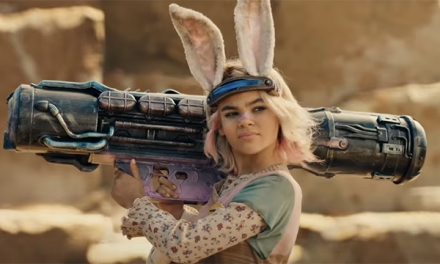The previously secret, off-and-on talks between Disney and Fox are on again. As covered earlier last month, News Corp approached Disney about buying its movie studio, 20th Century Fox. There are two big prizes enticing Disney. The first, is the ability to bring Fox’ Marvel licenses back under its own roof. The second, is to add Fox’ vast movie and television library to Disney’s already enormous library.

A Disney acquisition of 20th Century Fox would see assets divided among divisions
What does Disney get out of it?

Wolverine has been a full member of the Avengers
Following Sony’s deal regarding Spider-Man, Fox was the only other holder of Marvel characters. It prohibited the use of the word “mutants” in any of the movies or TV shows. Agents of S.H.I.E.L.D. instead built their later seasons around the Kree-engineered Inhumans as the source of metahuman characters. In the terms of comic books, these offshoots of humanity had been overshadowed by the mutants with the success of the X-men, X-Factor and X-Force titles. It also lead to the situation where both X-Men and Avengers movies had dueling Quicksilvers, thanks to that character appearing in both teams. However, Wolverine was also a member of both teams. He is effectively locked out of the MCU for the same licensing reasons that kept Spider-Man out until recently.
Disney also announced its own streaming service to debut in 2019. In the increasingly crowded market that is pitting streaming vs. satellite/cable vs. broadcast, content is king. The most successful providers will have the deepest libraries. New content is important, but on-demand access to classics is also a key customer requirement.
Disney’s Lucasfilm also gets a slice of the Fox pie. It’s mostly accounting, but since Fox owns the distribution rights to Star Wars: A New Hope (the original Star Wars) in perpetuity, any time Disney wants to release it as part of a video set, they must ask Fox. Acquiring Fox cleans up a few loose ends, plus it allows Disney to retain all of the profits from the Star Wars saga going forward.
And as an added bonus…
While lucrative in their own rights, Fox’ partial ownership of Hulu, and the British satellite television provider, Sky are secondary. News Corp will retain ownership of its Fox News, and Fox Sports operations along with its broadcast network of television stations. Those will become the core focus of a downsized corporation. It was the British government’s refusal to allow Fox’ owner, Rupert Murdoch to purchase the remaining portion of Sky that is said to have triggered this new direction.
Also weighing heavily was the streaming market itself. Amazon, Hulu and Netflix are just three of nearly 20 video service providers. CBS and Comcast/NBC have already jumped into the market. Their neighbor in Burbank, Warner Bros, is being acquired by AT&T along with its parent, Time-Warner. While currently held up due to regulatory concerns, it is expected to eventually occur. The Warner Bros. library is second to none and is the primary factor driving the acquisition (publicly styled as a ‘merger’). AT&T also owns satellite provider DirecTV as well as the Uverse cable network. These two distribution channels essentially become a bundled streaming service available with a customer’s cable subscription. This puts AT&T ahead of other competitors who have to rely on third parties to deliver their content to their customers.
But wait, there’s more
Fox’ other assets included in the deal are the A&E, History, and Lifetime networks. National Geographic, Viceland and a number of overseas channels are also included. While lucrative properties in their own rights, they are clearly secondary considerations after the big prizes. Disney already owns 10% of Viceland and the ownership of the Sky network allows them to deliver their own content directly in Europe and Asia.
At present, Disney would also get the television and movie studios and related production facilities. Walt Disney Studios already owns a huge campus in Burbank that includes Hollywood Records and Disney Animation along with its corporate headquarters. The Mouse also owns the majority of film production space between Highway 134 and Western in the Thirty Mile Zone (TMZ), the heart of Hollywood studio production. The US Department of Justice has expressed reservations about the merger, and mostly due to the consolidation of production facilities. It would not be a surprise if a third party entered negotiations to purchase the physical properties.
What does the Fox say?
During the lull in negotiations with Disney earlier in November, Comcast stepped in to try and work a deal with Fox. It is said that Murdoch would much rather close a deal with Disney as it would be possible to get his son, James onto the Disney board.
By spinning off 20th Century Fox, News Corp would be getting an infusion of cash and be able to focus its concentration on competing in the markets where it excels, rather than getting left behind by others. The total value of the assets being discussed is said to exceed $60 billion. Fox shareholders would get a share of the remaining company plus shares of Disney at a fixed ratio. When the news that the talks had resumed, Fox’ (FOX on the NASDAQ) shares closed at $33.43, a high for the year. Disney’s (DIS on the NYSE) shares were down 2% to $107.22 which was average for the past year.
A smaller Fox is less appetizing to being acquired by bigger rivals and so the Murdoch family could still retain ownership without facing a shareholder revolt. And, of course, there’s that potential seat on the board …
-30-













You must be logged in to post a comment.